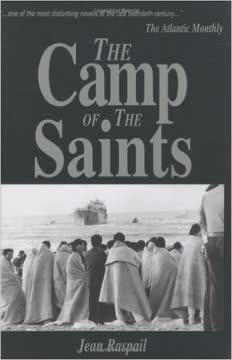Plot Summary
The Flotilla Approaches
In the opening, a vast, decrepit armada of ships, packed with a million desperate refugees from the Indian subcontinent, appears off the southern coast of France. The world is caught off guard by the scale and determination of this migration, which is driven by mythic hopes of a Western paradise. The ships, barely seaworthy, are propelled by a collective will to escape famine and despair, and their approach is both a humanitarian crisis and a symbolic invasion. The West, unprepared and paralyzed by its own ideals, watches as the flotilla draws closer, raising existential questions about borders, identity, and the limits of compassion.
The Old Professor's Vigil
On a hillside above the Mediterranean, the retired Professor Calguès observes the incoming fleet through his telescope. His home, a symbol of rooted Western tradition, becomes a vantage point for the unfolding drama. Calguès reflects on the meaning of open and closed doors—literal and metaphorical—as the world he knows faces an unprecedented test. His conversations with a young local, who welcomes the newcomers and scorns his own heritage, highlight the generational and ideological divides that paralyze resistance. The professor's decision to defend his home, even violently, foreshadows the tragic choices ahead.
The Myth of Paradise
In Calcutta, the myth of the West as a land of milk and honey takes hold among the destitute. The closure of Western adoption programs triggers a mass movement, as entire villages set out for the consulates, hoping for salvation. Religious and secular Westerners, wracked by guilt and idealism, inadvertently fuel the exodus by projecting their own doubts and self-critique. The myth grows into a collective fever, and charismatic figures—like the coprophage and his monstrous child—emerge as leaders, blending religious syncretism and apocalyptic prophecy. The West's own emissaries, torn between charity and self-preservation, are swept along by forces they cannot control.
The Consul's Dilemma
The Belgian consul in Calcutta, Himmans, is besieged by crowds and by his own countrymen's moralizing. He denounces the "pity" that has become a self-destructive Western obsession, blaming his fellow expatriates for undermining the very civilization they represent. As the myth of mass adoption morphs into a myth of mass migration, the consul's attempts at resistance are futile. He is ultimately killed by the crowd, a symbolic martyr to a lost order, while the Westerners who remain are either swept up in the exodus or rendered irrelevant.
The Engines of Pity
Across Europe, the media and intellectual classes respond to the approaching armada with a chorus of humanitarian rhetoric. Politicians, journalists, and clergy compete to outdo each other in displays of compassion, while practical preparations are neglected. The "Big Other"—a metaphor for the dominant ideology of self-abnegation—enforces conformity and suppresses dissent. The West's institutions, from the Church to the state, are paralyzed by their own values, unable to reconcile the demands of universal charity with the instinct for self-preservation.
The Gathering Storm
As the fleet nears, Western society begins to unravel. The working class, the media, and the political elite are divided between those who welcome the newcomers and those who fear for their way of life. The government dithers, unable to act decisively. The military and police are demoralized, their authority eroded by decades of self-critique and legal constraints. The exodus from the South begins, as ordinary citizens flee the coast, abandoning their homes to the coming tide. The stage is set for a confrontation that will test the very foundations of the West.
The Armada Sets Sail
The armada's progress is tracked obsessively by the world's media, turning the crisis into a kind of reality show. Western governments debate, delay, and deflect responsibility, hoping the problem will resolve itself or fall on someone else. Attempts to divert the fleet to other destinations—Australia, South Africa—are rebuffed, often with their own displays of exclusion or violence. The refugees, meanwhile, endure unimaginable hardship, sustained by the myth of the promised land and the leadership of their own prophets.
The West Debates
In Paris, London, and other capitals, endless debates rage about the proper response. Intellectuals and journalists frame the crisis as a test of Western values, while practical solutions are endlessly deferred. The government's attempts at military intervention are half-hearted and ultimately fail, as soldiers and sailors refuse to fire on the helpless. The "game of anti-racism" becomes a national pastime, distracting the public from the reality of the approaching disaster. The West's inability to act decisively is both a cause and a symptom of its decline.
The Media's Siren Song
The media, led by figures like Durfort and Vilsberg, shape the narrative to emphasize guilt, compassion, and the inevitability of change. Dissenting voices are marginalized or silenced. The public, lulled by sentimental stories and moralistic rhetoric, is unprepared for the consequences of the fleet's arrival. The "game" becomes a substitute for real engagement, and the population is left passive, divided, and demoralized.
The Collapse of Resolve
As the armada lands, the government's last attempts at resistance crumble. The military, demoralized and divided, is unable to act. The police and civil authorities are overwhelmed or complicit. The last defenders—an ad hoc group of soldiers, officials, and civilians—make a symbolic stand in a village above the coast, but are quickly destroyed by superior force. The West's collapse is not marked by heroic resistance, but by confusion, flight, and self-doubt.
The Arrival at the Gates
The armada's passengers disembark, overwhelming the abandoned towns and villages of the French Riviera. The few remaining defenders are killed or swept aside. The newcomers, driven by need and myth, take possession of homes, food, and resources, often with violence but more often by sheer weight of numbers. The West's material abundance is consumed, its cultural symbols desecrated or ignored. The myth of paradise is replaced by the reality of conquest and dispossession.
The Last Stand
In the village, a small group of holdouts—soldiers, officials, and civilians—make a final, doomed stand. They are joined by a few outsiders, including a black Frenchman from Pondicherry and a former brothel owner, who choose to fight for the old order. Their resistance is both tragic and farcical, a gesture of defiance that is quickly crushed by overwhelming force. The village is bombed by French planes, and the last defenders are killed. Their deaths are quickly forgotten in the new order.
The Village Holds Out
The narrative lingers on the fate of the village and its last inhabitants, who become symbols of a lost world. Their resistance, though futile, is remembered by the narrator as an act of dignity and self-affirmation. The new regime, dominated by the former outsiders, rewrites history to erase the memory of the old order. The last survivors are marginalized, their culture and values rendered obsolete.
The Final Broadcast
The fall of France is broadcast to the world, triggering similar upheavals across the West. In London, New York, and elsewhere, the same patterns of paralysis, surrender, and dispossession play out. The old elites are swept aside, and the new order is established on the ruins of the old. The narrative closes with a sense of melancholy and resignation, as the last chroniclers of the old world record their memories for a future that will not understand them.
The Fall of the West
The aftermath is marked by the erasure of Western identity, the triumph of the "Big Other," and the establishment of a new, homogenized order. The last holdouts are hunted down or assimilated. The institutions of the old world—church, state, family—are dismantled or repurposed. The narrative voice, now in exile, reflects on the meaning of the catastrophe and the lessons that will not be learned.
The Aftermath and Reckoning
The novel ends with a meditation on memory, loss, and the cyclical nature of history. The narrator, writing from exile, acknowledges the inevitability of change but mourns the passing of a civilization that, for all its flaws, represented a unique experiment in human freedom and dignity. The final message is both a lament and a warning: the future will be shaped by those who remember, and by those who are willing to defend what they value.
Characters
Professor Calguès
Calguès is a retired professor who represents the rooted, reflective, and self-critical spirit of the old West. His home, filled with books and heirlooms, is a microcosm of the civilization under siege. He is both a witness and a participant, forced to confront the limits of his own ideals when faced with the reality of invasion. His psychological journey—from contemplation to violent action to resignation—mirrors the broader collapse of Western confidence and coherence.
The Coprophage and His Son
The coprophage, a pariah who makes fuel from excrement, becomes a prophet and organizer of the mass migration. His monstrous, deformed son is both a symbol and a totem, inspiring awe and fear among the refugees. Together, they channel the mythic energies of the crowd, blending religious and revolutionary fervor. Their leadership is both spontaneous and manipulative, exploiting the hopes and resentments of the dispossessed.
The Belgian Consul (Himmans)
Himmans is a Western official in Calcutta who tries, and fails, to stem the tide of migration. His attempts to assert order and reason are overwhelmed by the forces of myth, pity, and self-doubt. His death at the hands of the crowd marks the end of Western authority and the impotence of rational resistance in the face of mass movements.
Clément Dio
Dio is a journalist and intellectual who champions the cause of the newcomers, embodying the self-destructive tendencies of Western radicalism. He is both sincere and opportunistic, driven by a mix of guilt, resentment, and utopianism. His ultimate fate—killed by those he sought to help—underscores the tragic irony of his position and the dangers of ideological purity.
Jean Orelle
Orelle is a government minister and Nobel laureate, torn between his ideals and the realities of power. He is emblematic of the Western elite: eloquent, well-meaning, but ultimately paralyzed by self-doubt and the fear of moral compromise. His suicide, after the fall of France, is both a personal and a civilizational tragedy.
Colonel Dragasès
Dragasès is a professional officer who leads the final resistance in the village. He is pragmatic, humorous, and fatalistic, aware of the futility of his position but determined to act with dignity. His leadership is both inspiring and doomed, a final gesture of defiance in a world that no longer values his virtues.
Jules Mâchefer
Mâchefer is the editor of a small, embattled newspaper that resists the dominant narrative. He is stubborn, principled, and ultimately marginalized, a relic of a freer, more contentious public sphere. His fate—joining the last stand in the village—reflects the extinction of independent thought in the new order.
Hamadura
Hamadura is a black Frenchman from Pondicherry who chooses to fight for the old order, arguing that "being white is a state of mind." His presence complicates the racial narrative and highlights the possibility of loyalty and identity beyond skin color. He is both an exception and a symbol of what is lost.
The Old Duke d'Uras
The duke is a figure of the old nobility, clinging to tradition and ceremony even as the world collapses around him. His eccentricity and courage provide comic relief and a sense of continuity with a vanished past.
The Monks of Fontgembar
The monks, led by the aged Dom Melchior, attempt a futile act of faith by confronting the invaders with the Eucharist. Their deaths are both tragic and absurd, a final testament to the power and impotence of religious conviction in a secular age.
Plot Devices
Allegory and Apocalypse
The novel is structured as an allegory, drawing on biblical and apocalyptic imagery to frame the migration crisis as a test of Western civilization. The use of myth, prophecy, and religious symbolism elevates the narrative from a political thriller to a meditation on fate, identity, and the meaning of history.
Satire and Irony
Raspail employs biting satire to critique the self-destructive tendencies of Western intellectuals, politicians, and media. The narrative is laced with irony, as the very values that define the West—compassion, self-critique, openness—become the instruments of its undoing. The "Big Other" serves as a metaphor for the internalized voice of conformity and guilt.
Multiperspectival Narrative
The story unfolds through multiple viewpoints—professors, journalists, soldiers, refugees, politicians—creating a mosaic of responses to the crisis. This polyphony highlights the fragmentation and confusion of Western society, as well as the universality of the themes at play.
Foreshadowing and Symbolism
The narrative is rich in foreshadowing, with early scenes and dialogues hinting at the ultimate collapse. Symbols—doors, ships, the Eucharist, the monstrous child—recur throughout, reinforcing the sense of an inescapable fate and the cyclical nature of history.
Inversion and Parody
The novel frequently inverts traditional tropes—heroes become villains, victims become conquerors, charity becomes a weapon. The final stand in the village parodies both heroic resistance and bureaucratic legality, underscoring the absurdity of the situation.
Analysis
The Camp of the Saints is a provocative, allegorical meditation on the fragility of civilizations and the dangers of unchecked idealism. Raspail's narrative, though controversial and often polemical, forces readers to confront uncomfortable questions about the balance between compassion and self-preservation, the role of myth and media in shaping collective action, and the psychological vulnerabilities of societies that lose faith in themselves. The novel's enduring relevance lies in its exploration of how well-intentioned values can be weaponized against their own bearers, and how the refusal to acknowledge hard realities can lead to catastrophe. While its vision is bleak and its rhetoric incendiary, the book's ultimate lesson is a warning: civilizations are not destroyed by external enemies alone, but by the internal erosion of confidence, coherence, and the will to survive.
Last updated:
FAQ
Synopsis & Basic Details
What is The Camp of the Saints about?
- A World-Altering Migration: The novel depicts a massive, desperate armada of a million impoverished refugees from the Ganges region of India sailing towards the affluent southern coast of France. This unprecedented migration is driven by a mythic hope of a Western paradise, challenging the West's borders and its foundational values.
- Western Paralysis and Self-Doubt: As the "armada of the last chance" approaches, Western nations, particularly France, are paralyzed by a mix of humanitarian guilt, ideological confusion, and an inability to reconcile their ideals of universal compassion with the instinct for self-preservation. This internal conflict prevents any decisive action.
- The Collapse of an Old Order: The story culminates in the peaceful, yet overwhelming, "invasion" of France, leading to the rapid dissolution of its societal structures, institutions, and cultural identity. It portrays the West's capitulation not through military defeat, but through a profound loss of will and a self-inflicted moral disarmament.
Why should I read The Camp of the Saints?
- Provocative Social Commentary: The novel offers a stark and controversial critique of Western liberalism, multiculturalism, and unchecked humanitarianism, forcing readers to confront uncomfortable questions about national identity, borders, and the limits of compassion. It challenges prevailing orthodoxies and sparks intense debate.
- Deep Psychological Exploration: Raspail delves into the psychological complexities of characters on both sides of the divide, exploring motivations rooted in guilt, self-hatred, idealism, and a primal will to survive. It provides a raw, unflinching look at human nature under extreme pressure.
- Allegorical and Prophetic Vision: Beyond its literal plot, the book functions as a powerful allegory for civilizational decline, drawing on apocalyptic imagery and a sense of inevitable fate. Its "prophetic" quality, as noted by some readers and the author himself in the preface, continues to resonate with contemporary global events.
What is the background of The Camp of the Saints?
- Author's Provocation: Jean Raspail wrote the novel in 1971-1972, inspired by the simple question, "What if they arrived?" while looking out at the Mediterranean from his villa in Boulouris. He intended it as a polemical work, a "furious, tonic, almost joyful in its distress, but savage, sometimes brutal and revolting" critique of what he perceived as the West's self-destructive tendencies.
- Critique of Post-Colonial Guilt: The book emerged in a post-colonial era, reflecting anxieties about mass migration and the perceived moral decay of Western societies. Raspail explicitly critiques the "remorse" and "angelic softness" of Western consciences, which he believes disarm them against external pressures and internal subversion.
- Biblical and Historical Allusions: The title itself, "The Camp of the Saints," is drawn from the Book of Revelation (Apocalypse, XXe chant), framing the narrative as a modern-day apocalypse. The text is replete with references to historical events (e.g., fall of Constantinople, Algerian War, Pétain's France) and figures (e.g., Charles Martel, Gandhi, Sartre), grounding its allegorical vision in a specific cultural and historical context.
What are the most memorable quotes in The Camp of the Saints?
- "Je me demande, se dit-il, si, en cette occurrence, il faut qu'une porte soit ouverte ou fermée ?" (Chapter I): This seemingly mundane thought by Professor Calguès encapsulates the central dilemma of the novel – the West's existential struggle between openness and self-preservation, a question that extends far beyond a physical door to encompass societal, cultural, and moral boundaries.
- "La lâcheté devant les faibles est une des formes les plus actives, les plus subtiles et les plus mortelles de la lâcheté." (Chapter XXXVII): Uttered by the French President in his faltering speech, this line highlights the novel's core critique: that Western compassion, when taken to an extreme that sacrifices self-interest and survival, becomes a fatal form of cowardice, leading to self-annihilation.
- "Être blanc, à mon sens, ce n'est pas une couleur de peau. Mais un état d'esprit." (Chapter XLVIII): Spoken by Hamadura, the black Frenchman from Pondicherry, this quote offers a nuanced perspective on identity, suggesting that "whiteness" is not merely a racial characteristic but a set of values, a cultural heritage, and a way of being that can be embraced or rejected regardless of one's origin.
What writing style, narrative choices, and literary techniques does Jean Raspail use?
- Polemical and Provocative Tone: Raspail employs a highly charged, often inflammatory, and unapologetically polemical tone, designed to shock and provoke. His language is direct, frequently using strong, visceral imagery and blunt pronouncements to convey his critical message.
- Allegorical Realism: While the plot is presented with a veneer of realism, the narrative is deeply allegorical, using characters and events to represent broader societal forces and philosophical concepts. This blend allows for both immediate impact and deeper thematic resonance, often blurring the lines between fiction and social commentary.
- Shifting Perspectives and Direct Address: The narrative frequently shifts between various character viewpoints and includes direct authorial interjections, often marked by phrases like "Perhaps this is an explanation..." or "Let us note..." This technique creates a multi-faceted, almost journalistic, account while allowing the author to directly guide the reader's interpretation and emphasize his underlying arguments.
Hidden Details & Subtle Connections
What are some minor details that add significant meaning?
- The "Smell" of the Armada: Repeatedly described as an "épouvantable odeur" (Ch. I, XIX, XXI, XLII) or "ça puait!" (Ch. XLII), the pervasive stench emanating from the ships is more than a sensory detail. It symbolizes the overwhelming, repulsive reality of the "Third World" for the West, a visceral assault that transcends intellectual debate and triggers primal revulsion, contributing to the flight of even the most ideologically committed.
- The Abandoned Dogs in Calcutta: After Consul Himmans's death, "vingt chiens abandonnés" lick his blood on the deserted quay (Ch. XII). This seemingly minor detail underscores the complete breakdown of order and the return to a primal state where even loyal animals are left to scavenge, mirroring the West's abandonment of its own principles and people.
- The "Game" of Anti-Racism: Mâchefer's cynical observation that the media and public engage in an "antiracism game" (Ch. XVII) highlights the performative and detached nature of Western engagement with the crisis. This "game" serves to anesthetize the population, preventing genuine confrontation with reality and ultimately contributing to their passive surrender.
What are some subtle foreshadowing and callbacks?
- Calguès's Open Door: In Chapter I, Calguès muses whether his door should be "open or closed." This seemingly simple question subtly foreshadows the larger societal debate about open borders and the West's inability to "close" itself off, leading to its eventual overwhelming. The young man's threat to burn the door for fuel later reinforces this symbolic destruction of tradition.
- The "River of Sperm" Metaphor: The Indian official's chilling description of his country as "un fleuve de sperme qui vient brusquement de changer de lit et roule vers l'Occident" (Ch. XI) is a brutal, biological foreshadowing of the demographic shift. It suggests an unstoppable, primal force of reproduction and migration that will inevitably overwhelm the aging West, a theme that underpins the entire narrative.
- The Repeated Phrase "Perhaps this is an explanation...": This recurring authorial interjection, often following a particularly bleak or absurd event, serves as a subtle callback to the narrative's interpretive framework. It invites the reader to consider the deeper, often uncomfortable, reasons behind the West's collapse, suggesting a complex interplay of psychological, cultural, and ideological factors.
What are some unexpected character connections?
- The "Renegade Writer" and Consul Himmans: The "écrivain renégat" (Catholic convert to Buddhism), later killed and thrown overboard by the armada (Ch. XXIII), is revealed to have been last seen alive by Consul Himmans in Calcutta (Ch. XXVIII). This connection subtly links two figures who, despite their differing approaches (one embracing the "Other," the other resisting), both ultimately become victims of the very forces they engaged with, highlighting the indiscriminate nature of the "invasion."
- The President and Mâchefer: Despite their public opposition, the French President secretly funds Mâchefer's struggling newspaper (Ch. XVII) and seeks his opinion (Ch. XVII). This hidden connection reveals a shared, albeit desperate, understanding of the truth between two seemingly opposing figures, suggesting that even within the highest echelons of power, there was a suppressed recognition of the impending catastrophe.
- The Colonel Dragasès and the Hussar Driver: The shared, almost theatrical, humor and fatalism between Dragasès and his hussar driver (Ch. XLV) in the face of impending doom create an unexpected bond. This connection highlights a specific type of "Western" resilience—a cynical, self-aware defiance that finds meaning in a lost cause and a dignified, if absurd, exit.
Who are the most significant supporting characters?
- Panamá Ranger: This young, charismatic leader of the "proletarian resistors" (Ch. XXXI) embodies the internal subversion of Western youth. His pursuit of "good times" and his casual violence, combined with his ideological slogans, represent a distorted revolutionary spirit that ultimately contributes to the chaos and the West's undoing, rather than offering genuine resistance.
- The Monks of Fontgembar: Led by Dom Melchior, these elderly Benedictine monks (Ch. XLI) represent a dying, traditional form of Christian faith. Their futile procession with the Eucharist to confront the armada, and their subsequent trampling, symbolize the impotence of traditional religious belief and ritual in the face of a material, overwhelming force, and the tragic absurdity of their sacrifice.
- The Egyptian Admiral: His brief encounter with the armada (Ch. XXI) and his decision to divert it from Suez, driven by a mix of fear and religious conviction ("Qu'Allah vous guide!"), highlights the pragmatic self-interest of non-Western nations. His actions, though seemingly minor, have a profound impact on the armada's trajectory, indirectly sealing the fate of France.
Psychological, Emotional, & Relational Analysis
What are some unspoken motivations of the characters?
- Western Self-Hatred and Guilt: Many Western characters, particularly intellectuals and politicians, are driven by an unspoken, deep-seated self-hatred and guilt over their historical prosperity and perceived colonial past. This manifests as a desire for "expiation" (Ch. XVII), leading them to embrace the "Other" and actively dismantle their own society, often without fully articulating this destructive impulse.
- The Armada's Primal Drive: Beyond the stated "myth of paradise," the armada's unspoken motivation is a raw, biological imperative for survival and propagation. The descriptions of rampant sexuality (Ch. XIX) and the willingness to sacrifice the weakest (Ch. XX) suggest a primal, amoral force of life that simply seeks to overwhelm and consume, rather than negotiate or integrate.
- The President's Hidden Despair: The French President's internal monologues and his broken voice during his final speech (Ch. XXXVII) reveal a profound, unspoken despair and a recognition of the futility of his position. His actions are less about conviction and more about managing an inevitable collapse, a quiet resignation to a fate he cannot alter.
What psychological complexities do the characters exhibit?
- Jean Orelle's Tragic Contradiction: The Nobel laureate and minister, Jean Orelle, embodies the tragic psychological complexity of the Western intellectual. He champions universal human rights and "socialism on a global scale" (Ch. XV), yet his private thoughts reveal a deep attachment to his Provençal villa and a dawning, painful realization of the self-destructive nature of his ideals. His suicide (Ch. XXXVIII) is the ultimate expression of this internal conflict.
- Boris Vilsberg's Paralysis of Doubt: The journalist Boris Vilsberg (Ch. XVII) represents the intellectual paralyzed by systematic doubt. While he articulates the "extreme vulnerability of the white race" and the impending threat, his constant questioning and refusal to commit to a definitive stance ultimately render him ineffective, reflecting a broader Western intellectual paralysis that prevents decisive action.
- The Soldiers' Moral Demoralization: The French soldiers and sailors (Ch. XXVI) exhibit a profound psychological demoralization. Decades of anti-military sentiment and self-critique have eroded their will to fight, leading to widespread desertion and a refusal to fire on the "helpless" invaders.
Review Summary
The Camp of the Saints is a controversial 1973 novel about mass migration from India to France, leading to societal collapse. Reviews are polarized, with some praising its prescience and others condemning it as racist. Critics argue it dehumanizes immigrants and promotes white supremacist ideology. Supporters view it as a warning about unchecked immigration and cultural preservation. The book's difficulty to obtain and its influence on right-wing figures like Steve Bannon have fueled ongoing debates about its significance and impact.
Similar Books
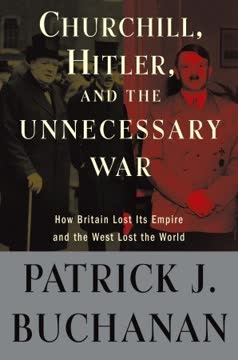
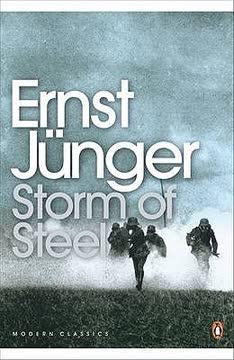
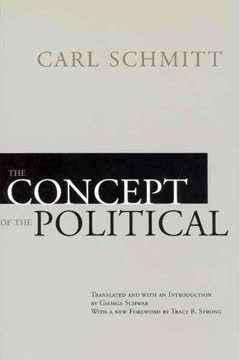
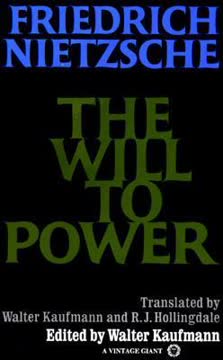
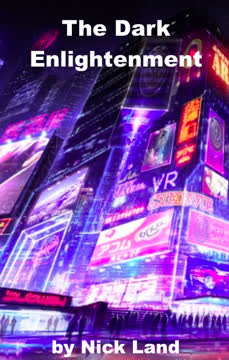
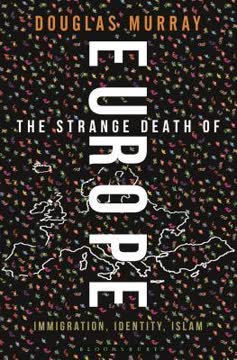
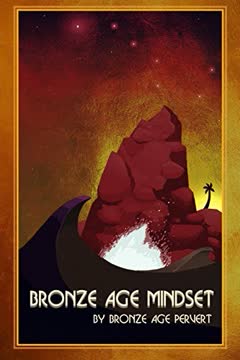
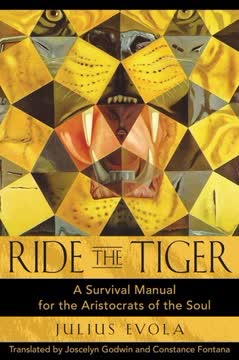
Download PDF
Download EPUB
.epub digital book format is ideal for reading ebooks on phones, tablets, and e-readers.
